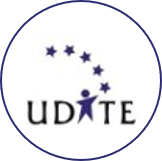UDITE PRESIDENT MESSAGE OF SOLIDARITY TO CEOs AND CITY MANAGERS AT ICMA
Overview
As part of a rolling series of COVID response videos being posted
by ICMA, UDITE President Paul Gatt has expressed his solidarity for
Chief Executives and City Managers dealing with the COVID-19 outbreak
in North America and beyond where Chief Executives are doing a
fantastic job leading by example in very challenging situations. Paul
kicks off by explaining the local situation in Malta, the role of the
local Councils and the current moves towards deconfinement there.
Towards a recovery plan for the European Union at local and
regional level
On the European level, whilst acknowledging that the EU coordination was a bit slow at the beginning – characterised by the suspension of the 26 strong country Schengen passport free zone with multiple countries notifying the EU of their intention to close borders he underlined the importance of coordinated action across the European Union and cross border as vital. UDITE welcomes the Corona Virus Response Initiative and the Coronavirus Response Investment Initiative Plus to reshape the Regional Funds to the Coronavirus economic recovery on the ground. This adds to the many other schemes that the European Commission has brought out in recent weeks.
UDITE joins a growing voice of opinion representing local and regional government in Europe that are calling upon the European Commission to be bold with its new recovery instrument of €750 bibillion that will boost the EU budget with new financing raised on the financial markets for 2021-2024 as the real economic and social challenges only now begin to emerge. The European Green Deal and the European Digital Strategy are also steps in the right direction and the latest amendment to the current EU budget until 2023 to identify an additional €11.5 billion for recovery measures is extremely welcome.
Confronting challenges
Paul goes on in the video to explain some of the things local government been doing underlining how municipalities and regions find themselves across Europe in the frontlines against this pandemic. Local government KEY WORKERS. have been continuing to provide essential services all the while doing their utmost to limit the risk of further infection. Some have done this at great cost in isolating themselves from their families in last 10 weeks. Financially, local government faces huge shortfalls in revenue due to the collapse in business activity and general economic slowdown, as well as the closure of theatres, museums and sports facilities. In Italy alone, cities face a shortfall in revenue estimated around €3 billion.
Local authority cases studies
Paul highlights a number of examples on the ground with Austrian municipalities, for example, offering food-delivery services to sick and vulnerable people upon request. In Germany, coronavirus testing has been increased considerably since the beginning of the crisis and are carrying out half a million tests per week. In the UK - Local Authorities have been given greater flexibility and allow them to further focus resources on responding to COVID-19. In Finland, the Government has announced that it will ensure that there will be no funding gaps for local governments and one of the first announced measures is an increase in the municipal share of corporate income tax revenue. In France, the "emergency bill" allows subnational governments to derogate from the spending rule adopted in 2018, which limits the growth of their operating expenditure to 1.2%. In Spain, local governments are now allowed to allocate up to EUR 300 million from the 2019 surplus to finance economic aid and all provision of primary care and dependency care managed by the social services
Paul underlined that coordinated responses by all levels of government can minimise crisis-management failures. It is not the degree of centralisation or decentralisation that matters for successful response measures, what matters is the effectiveness of the coordination mechanisms that are put in place.
Paul emphasises that local government, its expertise, knowledge of territorial realities and continuous contact with local and regional officials can be of invaluable assistance. In all affected countries, and in particular among the worst-hit as I can bear witness in my own country of Italy, we have seen that a coordinated response and dialogue between cities, regions and national governments are crucial.
Deconfinement
Finally, even though the situation differs drastically between Member States, it is essential to operate under a common approach. Three principles should guide Member States when gradually lifting restrictive measures:
-
Action must be based on science and have public health at its centre, while balancing social and economic remedies.
-
Action must be coordinated between the Member States to avoid negative spillover effects . This is a matter of common European interest.
-
Respect and solidarity between Member States remain essential to better coordinate , communicate and to mitigate the health and socio-economic impacts
While confinement measures are gradually lifted, there is a need to strategically plan the recovery, revitalising the economy and getting back on a path of sustainable growth. This includes enabling the twin transition towards a greener and digital society and drawing all lessons from the current crisis for the EU’s preparedness and resilience.
Paul concludes by inviting ICMA members to reach out to UDITE and continue collaborating closely as local government globally faces one of its most significant challenges it has faced since the Second World War.
5th June, 2020
